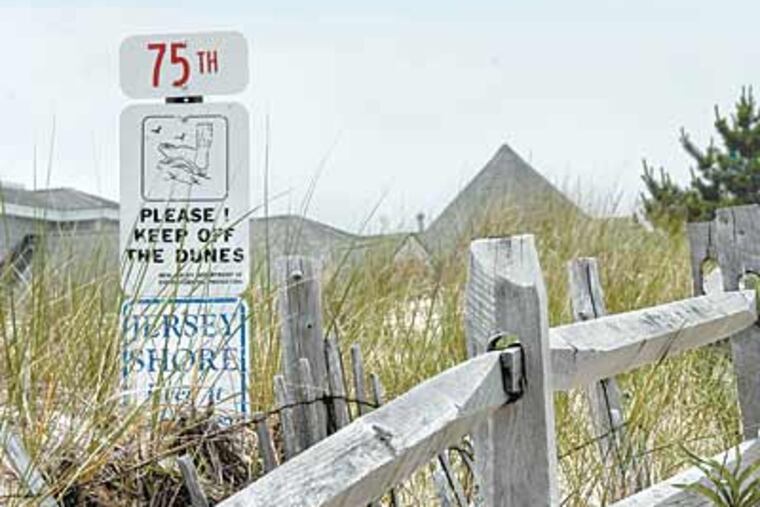Beach-access hearings draw mixed reactions
Marina owners and town officials favor the flexibility they'd get. Critics see unfairness.

AVALON, N.J. - This Cape May County shore town is where state regulations about precisely how and where the public could reach New Jersey's beaches were undone.
Avalon's lawsuit against the state Department of Environmental Protection led a court to strike down rules requiring public-access points every quarter-mile along the shore, and restrooms nearby.
The rules were issued during the tenure of Gov. Jon S. Corzine, a Democrat.
The administration of Republican Gov. Christie wants to let municipalities write their own public-access plans for the shoreline, subject to state approval. The proposal suggests access points each half-mile, but allows towns to decide how much parking and restrooms - if any - to offer.
The DEP has since tweaked the rules to ensure off-hours access for fishers, and to let marina owners keep the public out at night.
In Avalon on Wednesday morning, at a public hearing about the proposed changes, marina owners and officials from several shore towns said they liked the flexibility they would get. But critics said the regulations give far too much control to towns with a history of trying to keep outsiders off their sand.
A second hearing was held Wednesday night in Long Branch, Monmouth County.
"Instead of fixing the problems with the rules, the fix is in," said Jeff Tittel, director of the New Jersey Sierra Club, said at the earlier meeting. "These rules take the side of marina owners, people with large McMansions along the shore, casinos, and developers, but not the 99 percent of us who use the shore on a regular basis."
But Dorothy Jedziniak defended existing beach access on Ocean County's Long Beach Island, where she has lived for 40 years.
"There isn't one part of that 18 miles where anyone is prohibited - not one," she said.
Describing the previous rules as "everything open," she said: "You can't do that to private property. I want to be by the water. This is a golden jewel we have here."
Many beachgoers fear the new rules would reward the very people who for decades have made it hard for outsiders to reach the beach. The DEP does not make specific requirements for how the towns should allow access.
Some towns use tactics such as eliminating or severely restricting parking, not providing restrooms, and banning food and drink from the beach. That places some areas off-limits to would-be bathers who can't walk home to eat or answer nature's call. The beaches in Bay Head, Ocean County, were legally off-limits to anyone but residents for decades, until a court forced the town to admit those who buy a badge.
The new rules ask - but don't require - coastal towns to adopt public-access plans. For those that balk, the state has penalties it can mete out. One is cutting the town off from open-space funding under the Green Acres program. Another is ranking that town lower on the state's recommendation list for beach-replenishment money. A third is denying the town beach and dune maintenance permits.
Ray Cantor, a DEP official who presided over the hearing, said no municipality has filed a proposed public-access plan. But he said Long Beach Township, on Long Beach Island, has created new access through a once-wooded tract, and Upper Township, in Cape May County, has agreed to build a public fishing pier.